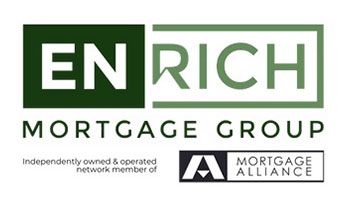Blog By
Enrich Mortgage Group

In response to the COVID-19 pandemic and in an attempt to protect the economic future of Canadians, the Canadian Mortgage and Housing Corporation (CMHC) announced in early June that it would be tightening its qualification rules for mortgage insurance from July 1, 2020. Fortunately, they are two other mortgage insurers: Genworth and Canada Guarantee and neither of them are changing their qualification rules. The CMHC policy change will only restrict those who want to buy a home with less than a twenty percent down payment, have a credit score lower than 680, and if they will be able to qualify based on a lower limit on gross and total debt servicing ratios. This will mean that some potential homebuyers will have to continue renting due to their inability to qualify for a mortgage. It may also push those who were working and were on the fence about buying to rush to get into homeownership not knowing there are other mortgage insurer options available through a mortgage broker. The soon-to-be-implemented mortgage rules are created to provide a view to the greater world that our federal government is taking measures to limit personal debt. The month of June has seen a short-term burst of buying while the month of July will likely see a drop in the real estate sales market as a result of both the policy change and pent up buyers from COVID-19. For rental housing providers, the new change will imply that there will be more tenants for longer as tenants may be unable to qualify for a mortgage or the mortgage amount they want, as they will need to increase income or reduce debt to do so. This translates into a greater opportunity for wealth growth by real estate investors as real estate is the most stable investment for long-term wealth growth. For CMHC, it will lower their insurance portfolio risk and thus that of the federal government. For the other mortgage insurers such as Genworth and Canada Guaranty, it is an opportunity for them to take a greater market share by not following CMHC in these policy changes. This policy will end up helping CMHC fulfill its real estate market projections. What better way to ensure your predictions than to influence the market by putting in new policies that will help to fulfill what you predict. In this case, limiting buying power which may translate to fewer sales. Unfortunately, this means tenants will remain tenants for as long as the federal government continues to create a nation of renters one policy at a time. As a potential homebuyer, it is evident that it may be much more difficult for you to qualify for a mortgage. Therefore, now more than ever, it is imperative to enlist the services of an expert mortgage broker to help you find out whether you can qualify for a mortgage. If you’re looking for a licensed mortgage broker or specialist in Calgary, Alberta, get in touch with Keith Uthe. I represent you, the client, to multiple lenders so that you have the largest selection of lenders, best terms, and the opportunity to achieve your homeownership goal. I work with many lenders who do not have to use only CMHC as their mortgage insurer. As long as other mortgage insurers do not follow suit on the policy change, I will continue to offer options for High Ratio insured mortgage clients. For my real estate investor clients, this policy should mean many tenants will likely remain tenants for long, thus making the rental housing provider market stronger. As an independent mortgage specialist with Mortgage Alliance Enrich Mortgage Group and a Legacy Certified Real Estate Investment Advisor, I have the knowledge and qualification needed to fulfill my clients’ requirements. By offering my clients quick and effective mortgage solutions, I not only guarantee them results they desire but also enable them to capitalize on growth opportunities to secure their future. I provide a range of professional mortgage services to clients across Calgary, Red Deer, Lethbridge, Edmonton, and Medicine Hat in Alberta. To learn more about the services I offer at Keith Uthe Demystifying Mortgages, please click here . For more information about how this policy change may impact you or if you want to book a free consultation, get in touch with me by clicking here . Alternatively, if you know someone who is considering buying a new home, have them contact me now to discuss their mortgage options.

In the intricate dance of real estate transactions, parents often find themselves in a pivotal role when it comes to helping their children purchase a home. With the soaring costs of homeownership, many young adults turn to their parents for financial assistance, whether it be in the form of a down payment gift or by co-signing the mortgage. While these gestures can be invaluable in helping children achieve their homeownership dreams, they also come with a set of considerations and responsibilities that parents should carefully weigh. Here, we delve into the key considerations for parents co-signing mortgages for their children. 1. The Dynamics of Co-signing Mortgages Co-signing a mortgage entails more than just providing a financial guarantee. It involves assuming shared responsibility for the loan alongside the primary borrower(s), typically the children in this context. One of the primary implications of co-signing a mortgage is that it affects the credit profile of all parties involved. Any missed or late payments will reflect on the credit reports of both the primary borrower(s) and the co-signer(s), potentially impacting their creditworthiness and future borrowing capabilities. 2. Ownership Structure and Legal Implications Beyond financial obligations, co-signing also extends to property ownership. All borrowers, including the parents as co-signers, will be registered on the title of the property. It's crucial to have a conversation with a legal expert to determine the most suitable ownership structure—whether as joint tenants or tenants in common. Joint tenancy implies equal ownership shares, while tenants in common allow for customized percentage ownership. 3. Exit Strategies and Flexibility Parents considering co-signing mortgages should also explore exit strategies to mitigate long-term commitments. Some lenders offer provisions to remove co-signers from the mortgage after a specified period, typically one year, provided the remaining borrower(s) demonstrate sufficient financial capacity to sustain the loan independently. Alternatively, transferring the mortgage to a different lender or refinancing the mortgage with the primary borrower(s) alone can facilitate the removal of co-signers, albeit subject to qualifying criteria and market conditions. 4. Tax Implications and Financial Planning It's essential to consider potential tax implications associated with transferring ownership or refinancing the mortgage. If the property serves as the primary residence for the children, removing parents from the title or mortgage may not trigger immediate tax consequences. However, changes in property use, such as converting it into a rental property, could have tax implications. Consulting with a qualified accountant is advisable to navigate the complexities of tax laws and ensure compliance. In the realm of real estate financing, the decision to co-sign a mortgage for a child involves careful deliberation and foresight. While it can be a meaningful way to support their homeownership aspirations, it's crucial for parents to understand the implications and responsibilities associated with this commitment. At Keith Uthe Demystifying Mortgages, we specialize in simplifying the complexities of mortgage financing, empowering clients to make informed decisions. If you're considering co-signing a mortgage or exploring other financing options, we're here to help. To learn more about our services and how we can assist you in navigating the complexities of business finance, please click here . If you have any questions or require further assistance, feel free to contact us at (403) 614-8843 or email us at keith@enrichmortgage.ca .
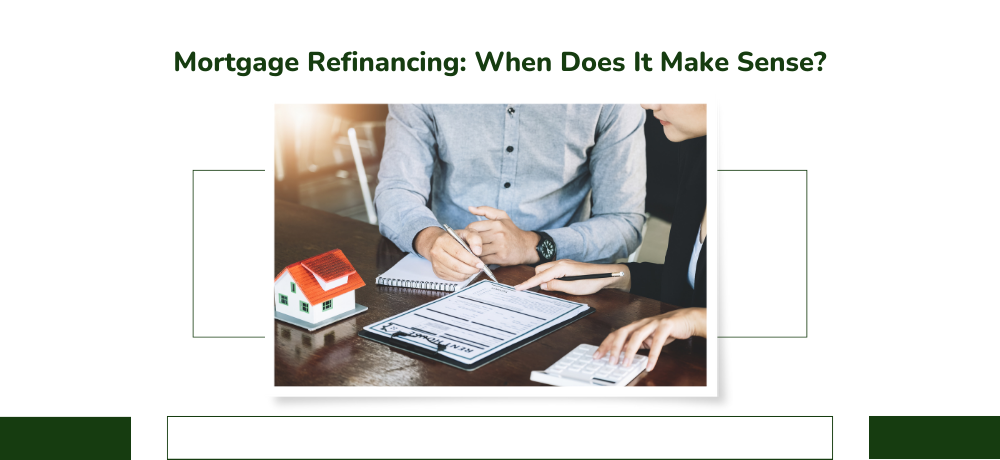
Considering mortgage refinancing can feel like navigating a labyrinth of financial decisions. With countless options and considerations, it's easy to feel overwhelmed. But fear not, for we're here to demystify the process and shed light on when mortgage refinancing truly makes sense. 1. Assessing Your Situation Before diving into the intricacies of mortgage refinancing, it's crucial to evaluate your current financial standing and homeownership goals. Are you looking to lower your monthly payments, tap into your home's equity, or shorten your loan term? Understanding your objectives will guide your decision-making process. 2. Determining the Right Time Timing is everything when it comes to mortgage refinancing. Keep a close eye on interest rates, as a significant drop could present an opportune moment to refinance and secure a lower rate. Additionally, consider your credit score. If it has improved since you initially obtained your mortgage, you may qualify for more favorable terms. 3. Calculating Potential Savings One of the primary motivations behind mortgage refinancing is to save money. Crunch the numbers to determine if the potential savings outweigh the costs associated with refinancing. Take into account factors such as closing costs, loan terms, and any prepayment penalties. A comprehensive analysis will reveal whether refinancing is financially advantageous for you. 4. Consolidating Debt If you're grappling with high-interest debt, mortgage refinancing can offer a lifeline. By consolidating your debt into your mortgage, you can benefit from lower interest rates and a single monthly payment, easing your financial burden and improving your cash flow. 5. Accessing Home Equity Your home is a valuable asset, and tapping into its equity can provide financial flexibility. Whether you're planning home renovations, covering educational expenses, or consolidating debt, mortgage refinancing allows you to access your home's equity and leverage it to achieve your goals. In conclusion, mortgage refinancing can be a strategic financial move under the right circumstances. By assessing your situation, timing your refinancing wisely, calculating potential savings, consolidating debt, or accessing home equity, you can unlock a myriad of benefits and achieve your homeownership goals. At Keith Uthe Demystifying Mortgages , we specialize in simplifying the complexities of mortgages and empowering our clients to make informed decisions. If you're considering mortgage refinancing or have any questions about our services, we're here to help. To learn more about our services, please click here . If you have questions, we’d be happy to hear from you. Please feel free to call us at (403) 614-8843 or email us at keith@enrichmortgage.ca .

Debt consolidation—it's a term you may have heard thrown around in financial circles, but what exactly does it entail, and why should you consider it? In today's economic landscape, managing debt can feel like navigating a labyrinth of high interest rates and multiple payment deadlines. However, there's a beacon of hope in the form of debt consolidation, a financial strategy that can offer a plethora of benefits for those seeking to regain control of their finances. 1. Streamlined Payments One of the primary advantages of debt consolidation is the consolidation of multiple debts into a single, manageable payment. Rather than juggling various due dates and interest rates, debt consolidation allows you to combine your debts into one monthly payment, simplifying your financial obligations and reducing the risk of missed payments. This streamlined approach not only minimizes the stress associated with managing multiple accounts but also provides a clearer picture of your overall financial standing. 2. Reduced Interest Rates High interest rates can significantly impede your progress in paying off debt, as a considerable portion of your payments may go toward interest rather than reducing the principal balance. Debt consolidation can help alleviate this burden by potentially securing a lower interest rate on your consolidated loan. By obtaining a consolidation loan with a lower rate than your existing debts, you can save money over time and expedite your journey toward debt freedom. 3. Lower Monthly Payments For many individuals struggling with debt, the weight of monthly payments can feel overwhelming. Debt consolidation can offer relief by extending the repayment period and reducing the amount you owe each month. While spreading payments over a longer term may result in paying more interest over time, the immediate benefit of lower monthly payments can provide much-needed breathing room in your budget, allowing you to allocate funds toward other financial goals or necessities. 4. Improved Credit Score A key component of your credit score is your credit utilization ratio—the amount of available credit you're using compared to your total available credit. High levels of debt can negatively impact this ratio and lower your credit score. By consolidating your debts and paying them off with a consolidation loan, you can lower your credit utilization ratio, potentially boosting your credit score over time. Additionally, making timely payments on your consolidation loan demonstrates responsible financial behavior to creditors, further enhancing your creditworthiness. 5. Enhanced Financial Management Beyond the immediate benefits of simplified payments and reduced interest rates, debt consolidation can facilitate a fundamental shift in your approach to personal finance. By consolidating your debts, you're taking proactive steps to regain control of your financial situation and work toward a debt-free future. This newfound sense of empowerment can inspire greater financial discipline and awareness, leading to improved money management habits that extend far beyond the realm of debt repayment. In conclusion, debt consolidation offers a multitude of benefits for individuals seeking to overcome the burden of debt and achieve greater financial stability. From streamlining payments and reducing interest rates to improving credit scores and enhancing financial management skills, the advantages of debt consolidation are clear. If you're ready to take control of your finances and explore the possibilities of debt consolidation, Keith Uthe Demystifying Mortgages is here to help. At Keith Uthe Demystifying Mortgages , we specialize in simplifying the mortgage process and empowering our clients to make informed decisions about their financial future. Whether you're interested in debt consolidation or exploring other mortgage solutions, our team is dedicated to providing personalized guidance and support every step of the way. To learn more about our services, please click here . If you have questions or would like to schedule a consultation, we'd be happy to hear from you. Please feel free to call us at (403) 614-8843 or email us at keith@enrichmortgage.ca .
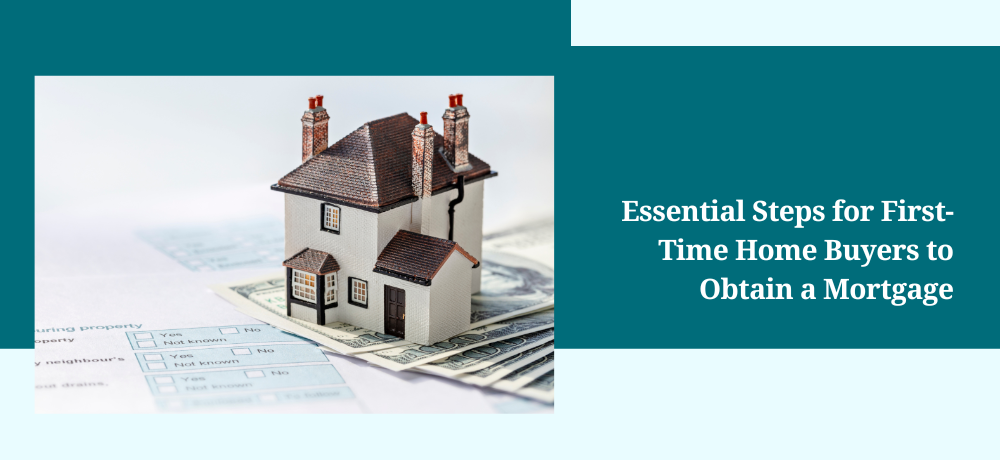
Are you a first-time home buyer in Canada? If yes, then the thought of buying a house might seem like a daunting task. The truth is, obtaining a mortgage is not as complicated as it seems. With the right assistance, you can easily navigate the mortgage process and become a proud homeowner. As a reliable mortgage agent in Calgary, Keith Uthe Demystifying Mortgages is here to help you every step of the way. In this blog, I'll guide you through essential steps for first-time home buyers in Canada to obtain a mortgage. By the end of this article, you'll have a better understanding of what it takes to secure a mortgage and be well on your way to homeownership. Before we dive into the steps, let's understand why obtaining a mortgage is relevant to you as a first-time home buyer. Owning a home is a significant investment that comes with numerous benefits, such as stability, financial security, and a sense of pride. However, buying a home requires a considerable amount of capital, which is where a mortgage comes in handy. A mortgage is a loan you take out to finance your home purchase, and it's essential to understand how to obtain one to make your homeownership dream a reality. Assess your Financial Situation The first step in obtaining a mortgage is to assess your financial situation. It would help if you looked at your credit score, income, and expenses to determine how much house you can afford. Your credit score is a critical factor when it comes to securing a mortgage, and you should aim for a score of at least 620. Lenders also consider your gross-debt service (GDS) and total-debt-service(TDS) in your debt-to-income ratios. Your GDS needs to be below 39% and your TDS below 44%, which should be below 43%. Get Pre-Approved for a Mortgage Once you've assessed your financial situation, the next step is to get pre-approved for a mortgage. Pre-approval is a process where a lender evaluates your financial information and determines how much money they're willing to lend you. This step is crucial as it helps you understand your budget, and it also shows sellers that you're a serious buyer. Find the Right Mortgage Product Finding the right mortgage product is essential to ensure that you get the best rates and terms for your specific situation and goals. What may be right for you is likely different than it was for your friend or family member. There are different types of mortgages available, such as fixed-rate and adjustable-rate mortgages. Fixed-rate mortgages have a set interest rate that doesn't change, while adjustable-rate mortgages have a fluctuating interest rate. There are many terms that make up part of a mortgage and all need to be considered with one of the key ones being early payout penalties, which is often overlooked, yet has the largest financial impact or raodbloack when rates drop. It's crucial to consider your financial situation and goals before choosing a mortgage product. Gather the Required Documents To obtain a mortgage, you'll need to provide certain documents, such as your pay stubs, tax returns, and bank statements. It's important to gather these documents early in the process to avoid delays. Submit your Application Once you've gathered the necessary documents, it's time to submit your mortgage application. Your lender will review your application and let you know if you're approved for the mortgage. Close the Deal If your application is approved, the next step is to close the deal. This process involves signing the mortgage agreement and paying any closing costs. Obtaining a mortgage as a first-time home buyer in Canada might seem overwhelming, but with the right assistance, it can be a smooth process. At Keith Uthe Demystifying Mortgages , I offer customized solutions to meet your unique needs. My team has an intimate knowledge of the lending environment, allowing us to navigate the market and find the best options that work in your favour. Contact me today to start your journey toward homeownership . To learn more about the services I offer, please click here . To get in touch with me, please click here or give me a call at (403) 614-8843 .

Buying a home is a significant milestone for many. However, navigating the mortgage landscape can be overwhelming, especially for first-time homebuyers. One of the best ways to simplify the process and get the best deal possible is by choosing the right mortgage broker. In this blog, we'll provide you with some tips on how to choose the right mortgage broker and what to look for when selecting one. Experience and Qualifications When choosing a mortgage broker, it's important to consider their experience and qualifications. Look for brokers who have been in the industry for several years and have a good track record. You can also check their qualifications and certifications, such as the Mortgage Broker License or Mortgage Agent License. Reputation and Reviews Checking a broker's online reviews and reputation is also crucial. Look for brokers who have positive reviews from past clients and a good reputation in the industry. You can also ask for referrals from friends and family who have recently obtained a mortgage. Communication and Availability The mortgage process can be time-consuming, and you want a broker who's readily available to answer your questions and keep you informed throughout the process. Look for brokers who are responsive , have additional support, communicate well, and are available when you need them. Mortgage Options and Rates A good mortgage broker should be asking the right questions to clearly understand you and your goals before discussing mortgae options and rates. There are strategies to consider prior to offering you a variety of different options and rates. They should also be able to explain the pros and cons of each option and help you choose the best one for your needs. Choosing the right mortgage broker can be a daunting task, but it's essential to ensure that you get the best deal for your unique needs. At Keith Uthe Demystifying Mortgages , I am dedicated to simplifying the mortgage process for you. Contact me today to learn more about our customized mortgage solutions and how I can help you achieve your homeownership dreams. To learn more about the services I offer, please click here . To get in touch with me, please click here or give me a call at (403) 614-8843 .

As interest rates rise and mortgage renewals loom on the horizon for millions of Canadians, concerns about financial stability are at the forefront of many homeowners' minds. According to a recent survey conducted, a significant portion of mortgage holders across the country are feeling apprehensive about their upcoming renewals, with 74% expressing concerns about higher interest rates. This sentiment reflects the impact of the Bank of Canada's series of interest rate hikes since March 2022, which have led to increased mortgage costs for many borrowers. Renewal Considerations and Challenges The survey reveals that a considerable number of mortgage holders are contemplating various strategies to navigate their renewals effectively. Among the top considerations are: Switching Lenders: With the aim of securing better rates or product options, 23% of mortgage holders are considering switching lenders. Extending Amortization Periods: Nearly a quarter of respondents (24%) are contemplating extending their mortgage's amortization period to lower monthly payments. Impact of Interest Rate Hikes: For those with variable-rate or hybrid mortgages, 64% have experienced increased mortgage payments due to higher interest rates, causing financial strain for many households. Importance of Professional Guidance In light of these challenges, engaging a licensed mortgage broker emerges as a critical step in navigating the mortgage renewal process. Here's why: Expert Advice on Strategies: Licensed mortgage brokers possess the expertise to assess individual financial situations and recommend appropriate strategies. Whether it's switching lenders, extending amortization periods, or exploring debt consolidation options, brokers can provide personalized guidance tailored to each client's needs. Access to Diverse Options: Mortgage brokers have access to a wide range of lenders and mortgage products, enabling borrowers to explore options beyond traditional banking institutions. This access increases the likelihood of securing favourable terms and rates that align with borrowers' financial goals. Navigating Regulatory Requirements: With evolving regulatory requirements such as stress tests for uninsured mortgages, navigating the mortgage landscape can be complex. Licensed mortgage brokers are well-versed in regulatory frameworks and can guide borrowers through the intricacies of compliance, ensuring a seamless renewal process. Exploring Opportunities Beyond Renewals Beyond addressing immediate renewal concerns, licensed mortgage brokers can also assist borrowers in leveraging their home equity for various financial objectives, including: Debt Consolidation: Consolidating high-interest debts into a single, manageable payment. Investment Opportunities: Accessing equity to fund investments or post-secondary education. Home Renovations and Repairs: Utilizing home equity to finance renovations or repairs, enhancing property value and livability. Retirement Planning: Strategizing mortgage options to align with long-term retirement goals. As Canadians navigate the complexities of mortgage renewals amidst rising interest rates, the role of licensed mortgage brokers becomes increasingly indispensable. By providing tailored advice, access to diverse mortgage options, and guidance through regulatory requirements, brokers empower borrowers to make informed decisions that safeguard their financial well-being. In an era of economic uncertainty, partnering with a licensed mortgage broker offers peace of mind and confidence in navigating the intricacies of mortgage renewals and financial planning. For further insights and personalized guidance on your mortgage renewal journey, contact Keith Uthe Demystifying Mortgages today. To learn more about the services I offer, please click here . To get in touch with me, please click here or give me a call at (403) 614-8843 .
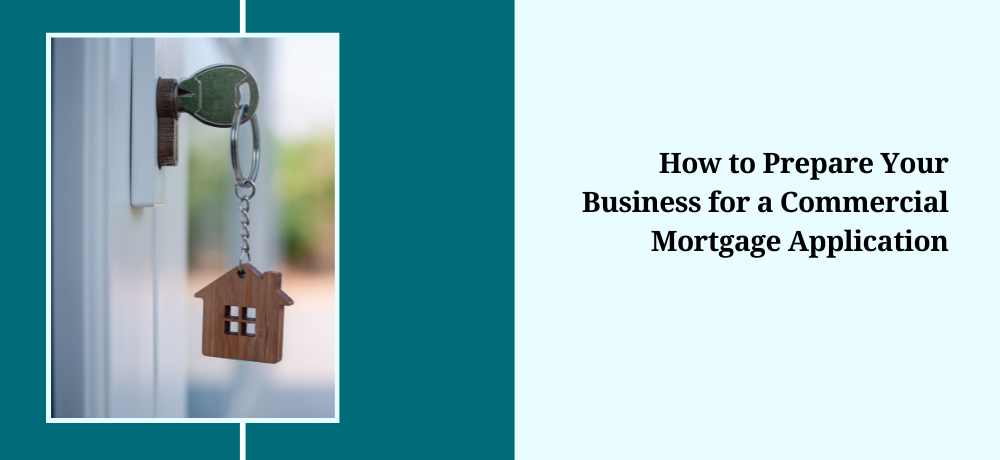
Expanding your business, purchasing, or refinancing commercial property can be an exciting time, but it can also be financially challenging. Applying for a commercial mortgage can be an overwhelming process, but with the right preparation, you can make the process more manageable. At Keith Uthe Demystifying Mortgages , I understand the challenges and complexities of obtaining a commercial mortgage. That's why I've put together this guide to help you prepare your business for a commercial mortgage application. In this blog, I'll cover everything you need to know, from the documents you'll need to gather to the factors lenders consider when evaluating your application. Getting Your Documents Ready Before you even start the process of applying for a commercial mortgage, you'll need to gather a variety of documents that lenders will require. The first step is to prepare a detailed business plan that outlines your business's goals, objectives, and financial projections. You'll also need to provide financial statements that show your business's income, expenses, and cash flow. Additionally, you'll need to provide personal tax returns, business tax returns, and any other financial documentation that lenders may require. It's important to make sure that all of your documents are up-to-date, accurate, and complete. Any missing or incomplete information can delay the approval process or even lead to the rejection of your application. At Keith Uthe Demystifying Mortgages , I can help you gather and organize all the necessary documents to ensure a smooth and successful application process. Understanding the Factors Lenders Consider Lenders evaluate several factors when considering a commercial mortgage application. One of the most significant factors is your company or commercial property's Income and Expenses as this determines the debt service coverage ratio(DCSR) for determining the loan amount. The second significant factor is your credit score, which provides. lenders with a snapshot of your creditworthiness. A good credit score can help you secure a lower interest rate and better loan terms. For existing businesses your business's financial history, including its revenue, expenses, and cash flow. Lenders will also consider the property you're looking to finance, including its value, location, and potential for generating income. It's important to keep in mind that lenders will evaluate your application as a whole and not just individual factors. Therefore, it's essential to present a complete and accurate picture of your business's financial health and potential. At Keith Uthe Demystifying Mortgages , I can help you understand the factors lenders consider and provide guidance on how to make your application stand out. Choosing the Right Mortgage Product There are different types of commercial mortgage products available, and it's essential to choose the one that's right for your business's unique needs. For example, a traditional commercial mortgage may be suitable if you're looking to purchase or refinance a property, while a construction loan may be more suitable if you're planning to build a property. Alternatively, a bridge loan may be appropriate if you need short-term financing to meet immediate needs. It's important to consider the loan term, interest rate, and repayment schedule when choosing a mortgage product. Additionally, you'll want to ensure that the mortgage product you choose aligns with your business's long-term financial goals and objectives. At Keith Uthe Demystifying Mortgages , I can help you understand the different types of commercial mortgage products available and provide guidance on how to choose the one that's right for your business. Working with a Mortgage Broker Navigating the commercial mortgage application process can be challenging, especially if you're not familiar with the industry. That's why working with a mortgage broker can be a smart choice. A mortgage broker can help you understand the different types of mortgage products available and guide you through the application process. They can also help you find the best mortgage rates and terms by working with a variety of lenders. Additionally, a mortgage broker can help you present your business in the best possible light to lenders, increasing your chances of approval. At Keith Uthe Demystifying Mortgages , I have an intimate knowledge of the commercial lending environment in Calgary and can provide expert guidance throughout the application process. We understand that every business is unique, and that's why we offer customized solutions to meet your specific needs. Contact us today to learn more about how we can help you secure the financing you need to grow your business. Applying for a commercial mortgage can be a daunting task, but with the right preparation and guidance, you can make the process more manageable. At Keith Uthe Demystifying Mortgages , I am dedicated to simplifying the commercial mortgage process for all business owners. Contact me today for professional assistance with your commercial mortgage application . To learn more about the services I offer, please click here . To get in touch with me, please click here or give me a call at (403) 614-8843 .
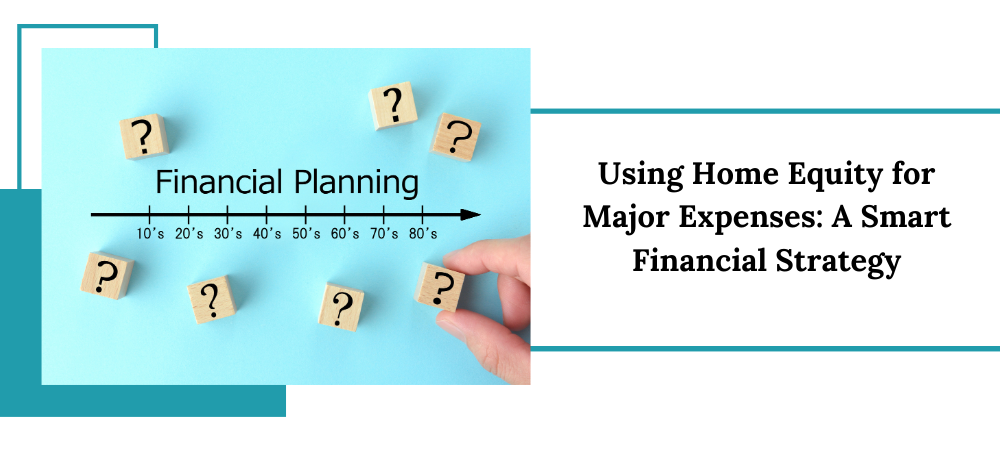
Homeownership is a significant milestone in anyone's life, but it also comes with its fair share of financial responsibilities. While it's wonderful to have a place to call your own, your home can also be a valuable financial asset. One way to leverage this asset is by tapping into your home equity, and in this blog, we'll explore how to use home equity for major expenses as a smart financial strategy. At Keith Uthe Demystifying Mortgages , we understand the importance of making informed financial decisions, and that's why we're here to guide you through the process. Understanding Home Equity Before we delve into the strategies for using home equity wisely, let's first clarify what home equity means. Home equity is the portion of your home's value that you truly own. It's the difference between your home's market value and the outstanding balance on your mortgage. Lenders are allowed to refinance your home up to 80% of the current value. For example, if your home is worth $300,000, and you have a mortgage balance of $200,000, your home equity is $100,000 ($300,000 - $200,000) and 80% of $300,000 is $240,000 meaning you should be able to access $40,000. 1. Home Equity: Your Valuable Asset Using Home Equity for Major Expenses Now that we've established what home equity is, let's explore how you can harness its potential to tackle significant financial expenses. 2. Smart Financial Strategy: Tapping into Home Equity Home Renovations and Improvements One of the most common uses of home equity is for home renovations and improvements. Whether you're looking to update your kitchen, add a new bathroom, or enhance your outdoor living space, using your home equity can be a cost-effective way to finance these projects. By reinvesting in your home, you not only improve your living space but also increase its market value. Home equity can provide you with the funds needed to turn your dream home into a reality. Moreover, the interest rates on home equity loans or lines of credit are often lower than other forms of borrowing, making it a financially savvy choice. Debt Consolidation If you're burdened with high-interest debt from credit cards, personal loans, or other sources, tapping into your home equity can help consolidate your debts into a single, manageable loan. This approach allows you to benefit from lower interest rates, potentially saving you thousands of dollars in interest payments over time. By consolidating your debts, you streamline your financial obligations, making it easier to track and manage your finances. It's a smart move towards achieving long-term financial stability. Education Expenses As a parent or guardian, you want to provide the best educational opportunities for your children. Using your home equity to fund education can be a wise choice. Whether it's saving for college tuition, covering the costs of private school, or supporting their postgraduate studies, home equity can serve as a valuable resource. By investing in education, you're investing in your child's future. Plus, with the potential tax benefits associated with certain home equity loans, you can make the most of this financial strategy. Emergency Fund Life is unpredictable, and unexpected expenses can arise at any time. Having a financial safety net is crucial for peace of mind. Your home equity can serve as that safety net, providing you with readily accessible funds in case of emergencies, such as medical bills, home repairs, or unexpected job loss. Establishing an emergency fund using your home equity can help you weather financial storms without resorting to high-interest loans or credit cards. 3. Unlocking the Potential of Home Equity Retirement Planning As you plan for your golden years, leveraging your home equity can be a strategic move. With the rising costs of living and healthcare, having a comfortable retirement nest egg is essential. By using your home equity wisely, you can supplement your retirement income, ensuring you have the financial freedom to enjoy your retirement to the fullest. There are various options available, such as reverse mortgages or selling your home and downsizing to a more manageable property. These strategies can provide you with the funds you need while allowing you to remain in your beloved home. 4. The Role of Mortgage Services in Home Equity Management At Keith Uthe Demystifying Mortgages , we understand that managing your home equity requires careful consideration and expert guidance. Our mortgage services encompass not only finding the right mortgage for you but also assisting you in optimizing your home equity to achieve your financial goals. Home Equity Line of Credit (HELOC) A HELOC is a flexible financial tool that allows you to access funds as needed, up to a predetermined credit limit. It's an excellent option for those who want to have a financial safety net without incurring interest charges until they use the funds. We can help you explore the benefits of a HELOC and guide you on how to manage it effectively. Mortgage Refinancing Mortgage refinancing involves replacing your existing mortgage with a new one, typically with better terms or a lower interest rate. This strategy can free up additional funds from your home equity, which can be used for various purposes. We'll work with you to assess if mortgage refinancing is the right choice for your financial situation. 5. Navigating the World of MortgagesFixed vs. Variable Rate Mortgages When considering a mortgage, you'll encounter the choice between fixed and variable interest rates. Each option has its advantages and drawbacks. We'll help you understand the implications of both and guide you in selecting the most suitable mortgage type based on your financial goals and risk tolerance. 6. The Importance of a Comprehensive Mortgage Plan Insurance and Protection Protecting your investment is paramount. We'll discuss the importance of mortgage insurance and how it can provide peace of mind for you and your loved ones. Our team can help you explore insurance options that align with your needs and circumstances. Budgeting and Financial Planning Achieving financial success goes beyond securing a mortgage. We'll delve into the importance of budgeting and financial planning, offering tips and strategies to help you manage your finances effectively and make the most of your home equity. Your home equity is a valuable financial asset that can be harnessed to achieve your various financial goals. At Keith Uthe Demystifying Mortgages , we're dedicated to providing you with the expertise and guidance you need to make informed decisions about your home equity and mortgage services. Whether you're looking to renovate your home, consolidate debt, fund education, or plan for retirement, we have the solutions to help you succeed. Our commitment to your financial well-being extends beyond securing mortgages. We specialize in Real Estate Investing and Legal Secondary Suites, assisting investors in building profitable property portfolios. Your financial journey begins here. To explore the full range of our services and gain personalized insights into optimizing your home equity, please click here . If you have any questions or seek tailored advice, don't hesitate to contact us at (403) 614-8843 or via email at keith@enrichmortgage.ca . Your financial future is our priority, and we're here to guide you every step of the way.

Welcome to a comprehensive guide on the benefits of mortgage refinancing. Whether you're a first-time homebuyer, a current homeowner looking to upgrade, or someone seeking to optimize your financial situation, mortgage refinancing can be a powerful tool. In this blog post, we will delve into the world of mortgage services, with a focus on mortgage refinancing. At Keith Uthe Demystifying Mortgages , we understand that your mortgage needs are unique, and that's why we offer a complete range of mortgage services to provide you with a customized solution. We are your trusted licensed mortgage broker/agent in Calgary, Alberta, and our goal is to help you make informed decisions about your mortgage. Understanding Mortgage Refinancing Mortgage Refinancing: A Closer Look Mortgage refinancing is a strategic financial move that involves replacing your current mortgage with a new one, often at more favourable terms. This process can help you achieve various financial goals, including reducing monthly payments, accessing home equity, or paying off your mortgage sooner. The Benefits of Mortgage Refinancing Lower Monthly Payments One of the primary benefits of mortgage refinancing is the potential to lower your monthly mortgage payments. This can free up extra cash for other financial goals, such as saving for education, investments, or reducing debt. At Keith Uthe Demystifying Mortgages, we'll help you explore refinancing options that align with your budget. Access to Home Equity If your home has appreciated in value since you purchased it, you may have built up substantial home equity. Refinancing can allow you to tap into this equity for major expenses, like home renovations or debt consolidation. We'll guide you through the process of using your home's value to your advantage. Shortening the Loan Term Mortgage refinancing also provides an opportunity to shorten the amortization of your loan. Switching from a 30-year to a 15-year amortization, for example, can help you pay off your home faster and save on long-term interest costs. We can help you determine if this option is right for you. Locking in a Better Interest Rate Interest rates fluctuate over time, and refinancing can enable you to lock in a lower rate, potentially saving you thousands of dollars over the life of your loan. We specialize in finding competitive rates to benefit our clients . The Smith Manoeuvre and Mortgage Refinancing As a Certified Smith Manoeuvre Mortgage Professional, we are well-versed in the Smith Manoeuvre strategy, a powerful wealth-building technique. The Smith Manoeuvre involves using your home's equity to invest in income-generating assets, such as stocks or real estate, ultimately creating a tax-deductible mortgage. By incorporating mortgage refinancing into the Smith Manoeuvre, you can optimize your cash flow and accelerate your wealth-building journey. At Keith Uthe Demystifying Mortgages , we have the expertise to guide you through this intricate process and help you make the most of your financial resources. In conclusion, mortgage refinancing can offer substantial benefits, but it's not a one-size-fits-all solution. At Keith Uthe Demystifying Mortgages , we specialize in mortgage services tailored to your unique needs. Whether you're a first-time homebuyer, looking for your next home, or considering refinancing, we have a range of mortgage solutions to consider. We also collaborate with real estate investors, leveraging our expertise in Real Estate Investing and specialization in Legal Secondary Suites to help clients build a portfolio of positive cash-flowing properties. Our goal is to assist you in achieving your financial objectives. To learn more about our services, please click here . If you have any questions, we would love to hear from you. Please feel free to call us at (403) 614-8843 or via email at keith@enrichmortgage.ca .
